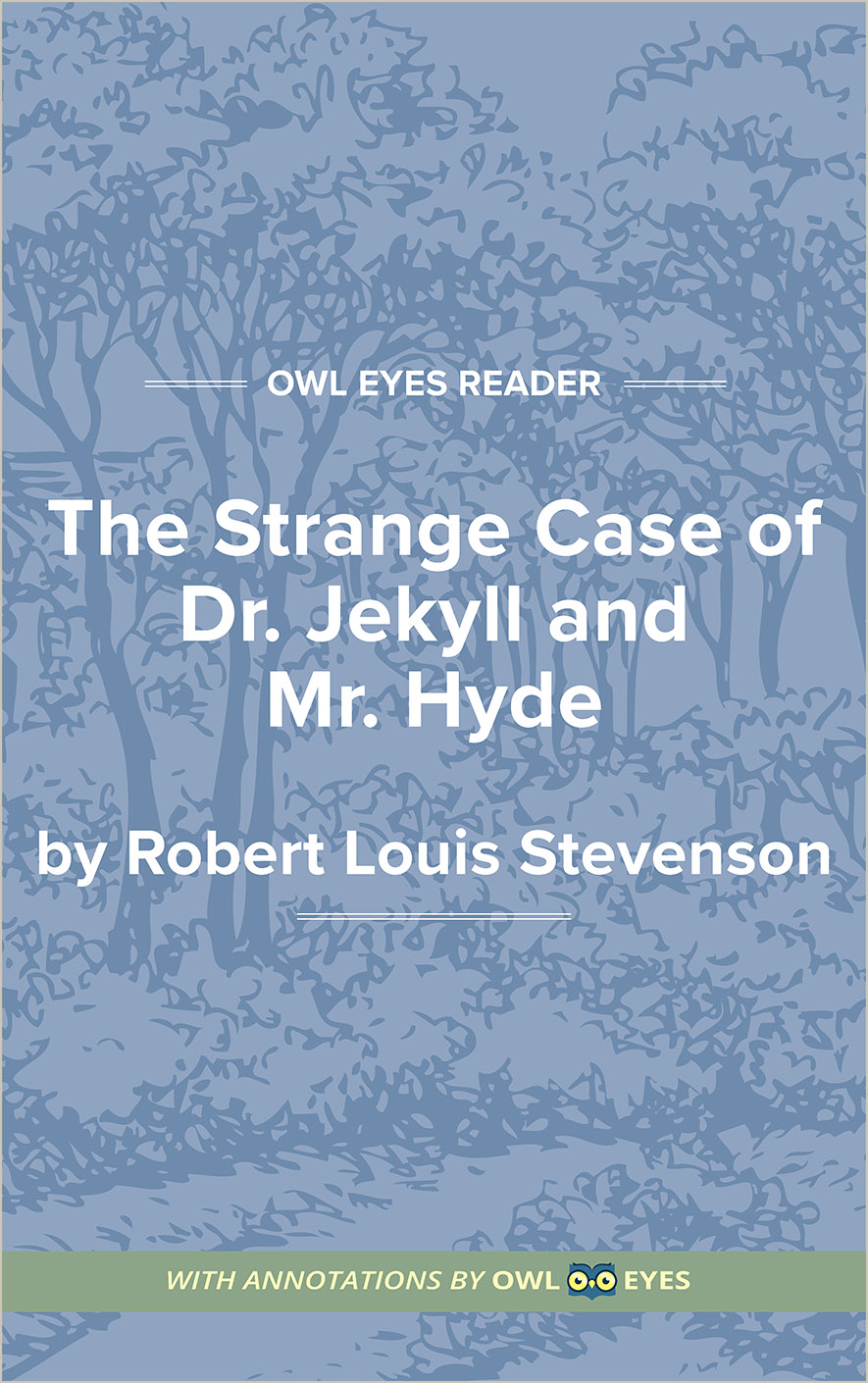Analysis Pages
Character Analysis in The Strange Case of Dr. Jekyll and Mr. Hyde
Mr. Gabriel Utterson: Mr. Utterson is the novel’s narrator, lawyer to Dr. Jekyll. He is loyal to his friends, and strives to get to the bottom of Jekyll and Hyde’s relationship without ruining the reputation of the former. Through investigating the strange goings-on in London, Utterson serves as a stand-in for the reader and represents the ideal Victorian: he is temperate, concerned with the appearance of decorum, and values rationality.
Dr. Henry Jekyll: Dr. Henry Jekyll is a brilliant, exceptionally well-educated physician. Behind the mask of his stellar reputation, Jekyll is an eccentric, tortured person. In his free time he pursues his interest in the occult and mystical realms of scientific knowledge. Spurring on Jekyll’s investigations are his internal moral struggles with the portions of himself which he deems evil. As the story progresses, these struggles begin to take over his life entirely.
Mr. Edward Hyde: Edward Hyde is a mysterious, dwarf-like man who haunts the streets of London by night, particularly the disreputable neighborhood of Soho. Mr. Hyde is everything a proper Victorian citizen strives not to be: violent, ugly, wicked, and lustful. As Mr. Utterson pursues his investigations, the riddle of Hyde’s dark origins slowly comes to light.
Dr. Hastie Lanyon: Dr. Lanyon is a friend to both Utterson and Jekyll, as well as a successful physician in his own right. In many ways, Lanyon is a foil to Jekyll: he is a rationalist in the realm of the sciences and thus despises Jekyll’s occult inclinations.
Character Analysis Examples in The Strange Case of Dr. Jekyll and Mr. Hyde:
Chapter One
🔒"“I incline to Cain’s heresy,” he used to say, quaintly; “I let my brother go to the devil in his own way.”..." See in text (Chapter One)
"to mortify..." See in text (Chapter One)
"He was austere with himself; drank gin when he was alone, to mortify a taste for vintages; and though he enjoyed the theater, had not crossed the doors of one for twenty years...." See in text (Chapter One)
Chapter Two
🔒"Something troglodytic, shall we say?..." See in text (Chapter Two)
"a propos..." See in text (Chapter Two)
"through wider labyrinths of lamplighted city, and at every street corner crush a child and leave her screaming...." See in text (Chapter Two)
"what does not always follow..." See in text (Chapter Two)
"This document had long been the lawyer’s eyesore. It offended him both as a lawyer and as a lover of the sane and customary sides of life, to whom the fanciful was the immodest...." See in text (Chapter Two)
"Henry Jekyll, M.D., D.C.L., LL.D., F.R.S., etc...." See in text (Chapter Two)
Chapter Three
🔒"The large handsome face of Dr. Jekyll grew pale to the very lips, and there came a blackness about his eyes...." See in text (Chapter Three)
"that hide-bound pedant, Lanyon..." See in text (Chapter Three)
Chapter Four
🔒"She had an evil face, smoothed by hypocrisy, but her manners were excellent...." See in text (Chapter Four)
"The dismal quarter of Soho seen under these changing glimpses, with its muddy ways, and slatternly passengers, and its lamps..." See in text (Chapter Four)
"trifling..." See in text (Chapter Four)
"but the moon shone on his face as he spoke..." See in text (Chapter Four)
Chapter Six
🔒"If I am the chief of sinners, I am the chief of sufferers also. I could not think that this earth contained a place for sufferings and terrors so unmanning;..." See in text (Chapter Six)
"I sometimes think, if we knew all, we should be more glad to get away.”..." See in text (Chapter Six)
"He had his death-warrant written legibly upon his face...." See in text (Chapter Six)
Chapter Seven
🔒"the smile was struck out of his face and succeeded by an expression of such abject terror and despair, as froze the very blood of the two gentlemen below...." See in text (Chapter Seven)
"with an infinite sadness of mien,..." See in text (Chapter Seven)
Chapter Eight
🔒"malefactor..." See in text (Chapter Eight)
" that the wine was still untasted when he set it down to follow...." See in text (Chapter Eight)
Chapter Nine
🔒"moral turpitude..." See in text (Chapter Nine)
"farrago..." See in text (Chapter Nine)
Chapter Ten
🔒"I became, in my own person, a creature eaten up and emptied by fever, languidly weak both in body and mind, and solely occupied by one thought: the horror of my other self...." See in text (Chapter Ten)
"it fell out with me, as it falls with so vast a majority of my fellows, that I chose the better part and was found wanting in the strength to keep to it...." See in text (Chapter Ten)
"It was the curse of mankind that these incongruous fagots were thus bound together’that in the agonized womb of consciousness..." See in text (Chapter Ten)
"blazoned..." See in text (Chapter Ten)

